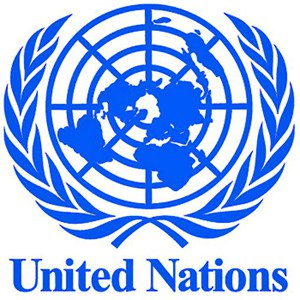
A global anti-corruption alarm bell revved recently when the United Nations sensitised the world to the danger corruption poses to development. Marking the event in Abuja, the United Nations Secretary-General, represented by Oliver Stozpe, the Country Representative, UN Office on Drugs and Crimes, revealed that an estimated $2.6 trillion is corruptly siphoned yearly. This translates to five per cent of the global Gross Domestic Product. Through money-laundering, illicit outflows, tax evasion, contract scams, and direct stealing from the treasury, public finance is haemorrhaged, making it difficult for governments to provide critical infrastructure such as roads, hospitals, schools and transport.
No country in Africa is more plagued than Nigeria. The Africa Union committee chaired by Thabo Mbeki, a former President of South Africa, which studied how it impacts governance, in 2015, submitted a report that was very revealing: out of at least $60 billion illegally transferred out of Africa annually, $40.9 billion was from Nigeria. The AU is worried that only 39 out of 54 of its member-nations have so far ratified its anti-graft convention. Equally disturbing is the fact that the protocol is haphazardly enforced by countries that have embraced it.
Besides this indictment, a Wall Street Journal report, which leveraged AU and Economic Commission for Africa sources, showed that, with $217.7 billion, the country led in illicit financial outflows from the continent between 1970 and 2008. Egypt followed with $105.2 billion and South Africa, $81.8 billion, among others.
Under the Fourth Republic, corruption has reached astronomical level more than at any other period. For instance, a report by Global Financial Integrity, a United States-based group, said $182 billion had been stolen from Nigeria, and laundered offshore between 2000 and 2009. It relied on World Bank and IMF documents to reach this conclusion. And President Muhammadu Buhari, shortly after he assumed office, said $150 billion was lost to corruption in the 10 years to 2015. These funds are in secret bank accounts in local and foreign banks; and much of them are invested in the lucrative mortgage sector.
Unfortunately, the anti-corruption agencies in the past 15 years and other public institutions designed to promote accountability seem not to have an effective strategy to deal with the epidemic. Government agencies, often working at cross-purposes, are weak and inefficient. Thus, tainted political office holders, bureaucrats, the police and judicial personnel and private sector captains have taken advantage of this anomaly to deepen this unethical culture, which has badly eroded our moral values and dignity.
In countries that have tamed corruption, synergy among anti-graft bodies, the Office of the Attorney-General, parliament, judiciary and the police, is an irreducible element of their strategies. The implementation of the Anti-Money Laundering Act enacted in 2011 and strengthened with amendments and other supportive agencies, has been most ineffective. Through automation, it is obligatory for banks to alert the Economic and Financial Crimes Commission on transactions that fall within the “suspicious thresholds.” But Nigerian banks have defanged the Act, resulting in billions of dollars passing through their systems in illicit outflows to safe havens abroad. From Switzerland alone, Nigeria has reclaimed $1.07 billion from the funds Sani Abacha looted when he was the military Head of State.
In 2014, a former minister allegedly siphoned $115 million from oil industry racketeering and stashed it away illegally in four banks for the purpose of rigging the 2015 elections. The affected banks and their executives have not been made to face the law. At the behest of a court, the money was permanently forfeited to government in 2017.
Official lethargy in high profile corruption cases in the country, including when criminal allies of Nigerians in the Halliburton and Siemens scandals have been convicted, fined and jailed abroad, highlights incompetence, confusion and vacuity of strategy here. The latest perplexity is in the $1.1 billion Malabu oil block scam. Trials have been concluded in the United Kingdom and France and are ongoing in Italy. But the Attorney-General of the Federation and Minister of Justice, Abubakar Malami, once advised the EFCC to drop the case, citing lack of proof of evidence to support the money-laundering charge. This was despite his revelation in 2017 that Nigeria was about to receive $85 million from the UK following a “final judicial order for the remittance of money” as suspects had been convicted. Surprisingly, the government has now woken up from its slumber to sue two international oil firms in London linked to the oil block transactions. The Buhari government should go beyond these belated rallies to provide a coherent and robust strategy to drive the process.
The UK, despite its effective institutions in law enforcement, has reviewed its strategy against financial corruption by introducing the “Unexplained Wealth Orders Regulation.” It is now obligatory for the owner of property worth over £50,000 to explain beyond reasonable doubt the source or risk its forfeiture. This shifts the burden of proof to the accused, rather than the old order of the accused being presumed innocent until proved guilty. Instructively, this is in response to the changing times. Singapore, once a corruption haven, adopted the style in cleaning up its system, which earned it plaudits in the anti-graft crusade. Indonesia also is making progress with it.
Institutions in Nigeria, including the judiciary, must be similarly strengthened to perform their responsibilities without fear or favour. They must keep a clear distance from partisan politics. That is the only way to give meaning and verve to the anti-corruption fight. The US justice system typifies this paradigm with its recent conviction of Michael Cohen, a former lawyer to the sitting President, Donald Trump. He was slammed with 36 months jail term for attempting to subvert the country’s electoral process, for the benefit of his boss. Without being nudged by the president, the criminal justice system in South Africa put Jacob Zuma on corruption trial shortly after he left office. This is the path Nigeria must follow for the anti-graft campaign to take root.
END

Be the first to comment